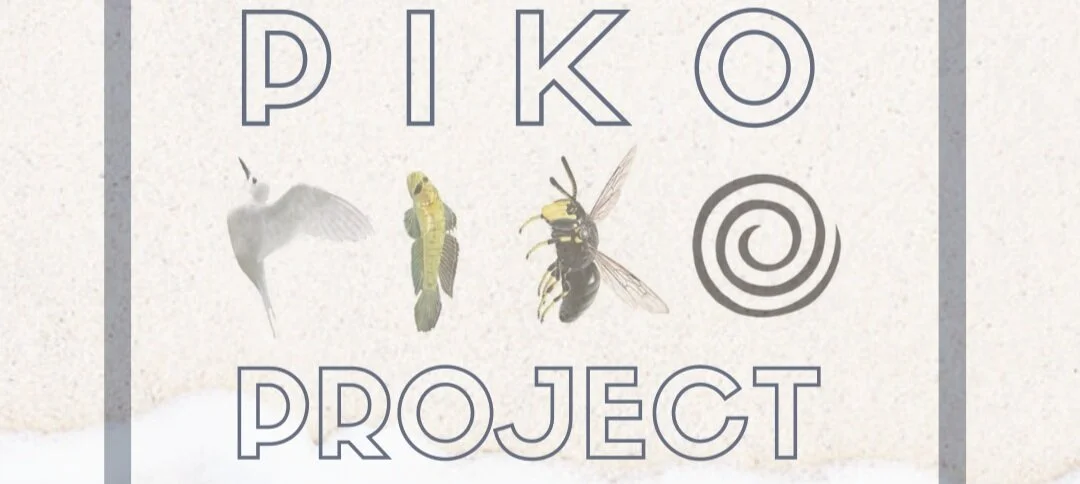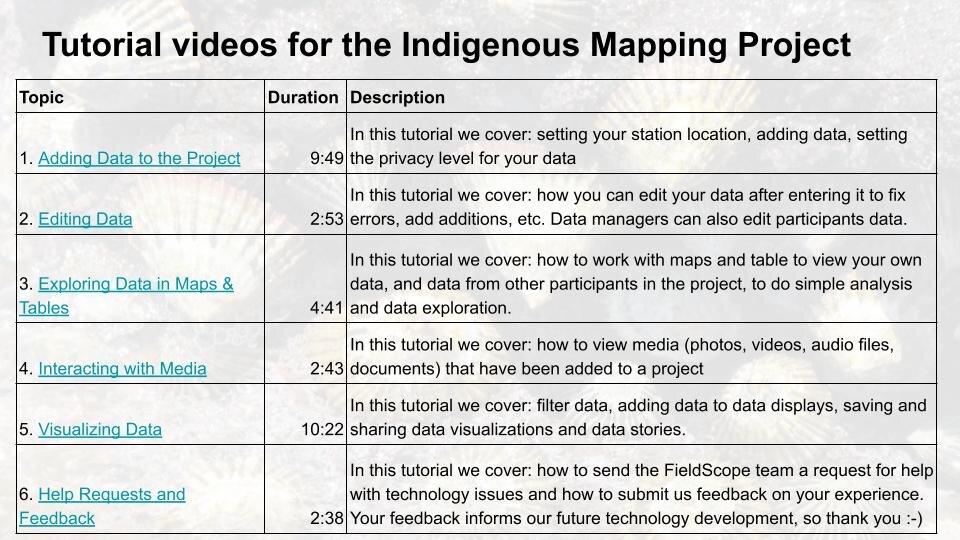Hoʻi i ka PIKO
In October and November 2020, Hawaiʻi educators gathered for the PIKO Project, a virtual place-based curriculum design workshop series. Together we explored the PIKO Rubric, a new resource co-produced by WestEd researchers and Indigenous educators to compile rigorous standards for place- and culture-based curriculum design. Join us again as we re-introduce the PIKO Rubric and share out examples of lessons and resources aligned to the standards.
Hoʻi i ka PIKO
Tuesday, April 20, 2021
4:30-6:00pm on Zoom
Reunion Workshop Resources
The Hawaiʻi Indigenous Mapping Project
Are you a teacher collecting place-based information via kilo activities or moʻolelo? Are your haumāna engaged in environmental measurement and observation? The Hawaiʻi Indigenous Mapping Project connects citizen science to place-based and culture-based education using FieldScope, a Geographic Information Systems (GIS) interface for gathering, sharing and visualizing multimedia data using just a browser.
In our April 9th workshop, we explored how teachers are currently using this platform to enable student-led research into ʻāina, kaiāulu and moʻolelo. We tested out FieldScope features such as station mapping, entering environmental data and protecting sensitive cultural data using a series of example projects.
Workshop resources
The Hawaiʻi Indigenous Mapping Project Tutorial Videos
Use these videos to teach students how to upload, explore and visualize data on the FieldScope platform.
Teacher Workshop and the Moʻolelo Kula Project
Learn how to use FieldScope via our Moʻolelo Kula Mini-Project, designed to introduce teachers to key features of the platform. Step-by-step instructions can be found in our workshop slides.
The Kilo Kōlea Project
In late April, most kōlea in Hawaiʻi begin their annual migration back to their seasonal breeding grounds in Alaska. Use this kilo activity to track their departure from your school grounds along with teachers all over Hawaiʻi.
The PIKO Project
Join us as we gather ʻike from within and beyond our community, to enrich our Indigenous, place-based teaching practices and curriculum designs.
This virtual workshop series will take place over the course of three Tuesday afternoons beginning on October 6, and continuing October 20, and November 10, 2020. Meetings run from 4:30pm to 6pm and will be facilitated by Kumu Kaleo Hanohano (Kahuku HS) and held over Zoom every other week to provide asynchronous time for thoughtful curriculum development. At the core of the workshop is a rubric for place-based content standards designed by Kumu Kaleo and colleagues at West Ed.
Bring your own curriculum to develop, or utilize existing STEM content from our Nā Wai ʻEkolu projects or Kumu Kaleo's phenology units: Aia i hea ka wai a Kāne? to build your own lessons that deepen the connections between STEM and place.
Contact ychan@iolani.org to join us at any time during the series.
Workshop Materials
The PIKO Rubric
Prior to the workshop, explore the PIKO Rubric to learn more about the place-based standards.
October 6 Meeting:
Kaleo’s slides | Breakout 1 Group Doc | Breakout 2 Group Doc
October 20 Meeting:
November 10 Meeting:
Curriculum and Content
Start writing a new place-based lesson from scratch, bring existing curriculum to align with the PIKO Rubric, or draw from content and data available from workshop organizers and participants.
Teaching Change: Aia i hea ka wai a Kāne?
Written by Kaleo Hanohano, this lesson uses kilo activities to follow the water. Units introduce waiwai, cultural kīpuka and mālama honua.
Nā Wai ʻEkolu: Stream biodiversity
A collection of lessons and activities that explore the native and invasive fauna in Hawaiʻi’s streams.
Nā Wai ʻEkolu: Mosquitoes in Hawaiʻi
Utilize citizen science data collected by teachers and students across Hawaiʻi to understand more about mosquitoes and their impacts on our islands.
Nā Wai ʻEkolu: Manu o Kū Nesting
Explore the distribution of Manu o Kū in urban Honolulu using citizen science data.
ʻĀina-Informatics: GMO Papaya and Bioethics
Link labs which uncover the proportion of GMO papaya trees on Oʻahu with the ethics of biotechnology in our islands.
Citizen Foresters: The Value of Trees in our Urban Watershed
Written by Cristin Priolo, Janelle Chong, and Andrea Charuk in partnership with Smart Trees Pacific. A collection of 12 interdisciplinary lessons designed to foster student relationships with place, spark inquiry about the interaction between the natural and built environment, and provide practical skills for planning and implementing tree planting on campus.







